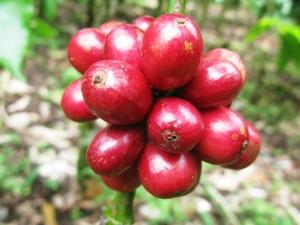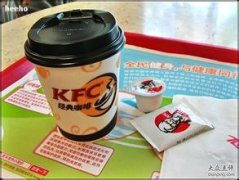Lei Shuya: "Goushu Coffee", what about the mash-up?
Tianjin GouBuLi Group, a Chinese time-honored brand with a history of more than 150 years, has announced that it has successfully won the permanent right to use Australia's largest coffee chain in China. This means that GouBuLi, the representative of traditional Chinese food and beverage, has officially entered the field of coffee chain.

When everyone was excited about the mix of "drinking coffee and only steamed buns", and when some people were confused, the person in charge of GouBuLi responded: "in the future, steamed buns and coffee will operate independently. There will be no scene of drinking coffee in a steamed stuffed bun shop or eating steamed buns in a coffee shop." What's more, numerous industry experts said: "it is necessary to be completely successful-going to the dog is unreasonable."
Steamed buns with coffee, deep inside, is coffee beans, pork, vegetables, or bean paste, sesame, flour and other dry ingredients, there seems to be no conflict. It's not unusual for coffee shops to sell steaks. Of course, people say that coffee is not eaten with steak, it is an after-dinner drink. There is nothing wrong with eating steamed buns before drinking coffee, or coffee before steamed buns. In addition to the nutritional value, there are vegetables, meat and staple food in steamed buns, which contains vitamins, protein, dietary fiber and other nutritional elements; coffee in addition to moisture, there are sugars, fat, potassium, crude fiber and so on. The two are in line with the golden matching principle of salty, sweet, vegetarian and dry breakfast. In terms of nutrition, this mash-up is still scientific.
But for reasons that don't match, an expert in the food industry said: "Coffee is simply slow, culturally slow, casual and casual, but both GouBuLi steamed buns and Quanjude are required to be fast." "this combination of Chinese and Western is a mixed blessing for GouBuLi: the good news is that Chinese time-honored brands have found a new direction outside steamed buns; the worry is that the grafting of the two brands does not have any advantage." People in the industry must have business insights, but is the steak fast or slow? you can't wait until it's cold, right? There seems to be no difference between steamed buns and steamed buns in this respect. Whether you have the advantage of grafting or not depends on your original intention when you violently pursue Bai Fu Mei's "Gaolue".
In fact, the grafting disadvantages that experts worry about are the differences between Chinese and Western cultures, as well as the distinct "temperament" and consumer groups represented by coffee and steamed buns. In fact, to put it bluntly, it is the difference between petty bourgeoisie, middle class, business and public consumption, and between the middle and low classes. Coffee shop, should be retro leather sofa, strong aroma of coffee, soothing jazz music, service in a low voice, diners quiet, a dish on the ground. And the steamed stuffed bun shop is noisy and hot, with migrant workers coming and going, as well as uncles and aunts.
Starbucks is very successful in China, it is said to have formed a coffee religion: to form a community of people with similar life style and social identity. In this sense, there is absolutely no possibility of grafting between "GouBuLi" and "Gaoleya". But Starbucks' original idea of success was to create a relaxed and warm atmosphere. Starbucks sells not just coffee, but the environment.
When it comes to the environment, perhaps the biggest disadvantage of our traditional food and beverage is here. Hangzhou Xinfeng steamed stuffed bun has just been there. I went to the hall on the second floor to eat, and as a result, the steamed buns had to be bought separately in line downstairs. I wrote two tickets for wonton and fans, which were small and thin, and they fell to the ground when they were handed over, and to make matters worse, they fell right into the sewer gap, which was still in the store. You have to find a tray to transport the vermicelli and wonton, but it's a long way away and it's all greasy. Of course, the steamed stuffed bun wonton tastes really good and the price is a little embarrassing, but if the health service is in place, the decoration is not luxurious, and there is no sofa, piano or WIFI, it's not that important.
Can the grafting point of coffee and steamed buns be environment and service?
Since coffee shops can sell snacks and buy fried rice, why do we have to "de-steamed stuffed bun" and "go to the dog"? In reality, it is estimated that no one does not know that "Gloria" and "GouBuLi" have handled permanent marriage registration not only under vows of love and love, but also guaranteed by the legal system. Do we have to say again and again at the door of "Gloria" that "we have a dime relationship with dogs"? Now I'm really worried. Is it easy for a person to erase his background?
In fact, there is no cliff in the grafting of nutrition and culture between steamed stuffed bun and coffee, but the deep-rooted positioning in the head. Steak is high-end, and steamed buns are vulgar, as for ham sausage, lion head is simply vulgar. Actually, it's all a mouthful. And choice is also the freedom of customers. In fact, "Colorado" is also a popular brand, the price is about 25 to 40 yuan, and does not necessarily need leather sofas and jazz.
Important Notice :
前街咖啡 FrontStreet Coffee has moved to new addredd:
FrontStreet Coffee Address: 315,Donghua East Road,GuangZhou
Tel:020 38364473
- Prev

Industry bigwigs give advice for Pu'er Coffee
- Next

KFC enters the coffee market more than 140 KFC restaurants in Shenzhen sell freshly ground coffee
Reporter Zhang Huihui reported: from January 26, KFC has launched a series of freshly ground coffee products in more than 140 restaurants in Shenzhen, and the price is set at 10 yuan. This is the fourth city to open after Shanghai, Beijing and Guangzhou. At present, KFC has launched more than 900 freshly ground coffee restaurants. The reporter saw the freshly ground coffee in KFC restaurant in Vientiane City.
Related
- What brand of black coffee is the most authentic and delicious? what are the characteristics of the flavor of the authentic Rose Summer Black Coffee?
- Introduction to the principle and characteristics of the correct use of mocha pot A detailed course of mocha pot brewing coffee is described in five steps.
- Which is better, decaf or regular coffee? how is decaf made?
- How much is a bag of four cat coffee?
- How about four Cat Coffee or Nestle Coffee? why is it a cheap scam?
- Which is better, Yunnan four Cats Coffee or Nestle Coffee? How about cat coffee? is it a fake scam? why is it so cheap?
- How about Cat Coffee? what grade is a hoax? which instant coffee tastes better, four Cat Coffee, Nestle Coffee or G7 coffee?
- Process flow chart of coffee making-Starbucks coffee making process what coffee tastes good at Starbucks
- The top ten best coffee beans in the world Rose summer coffee or Tanzanian coffee tastes good
- Yunnan four cat coffee is good to drink?_four cat coffee is a big brand? four cat blue mountain coffee is fake?

